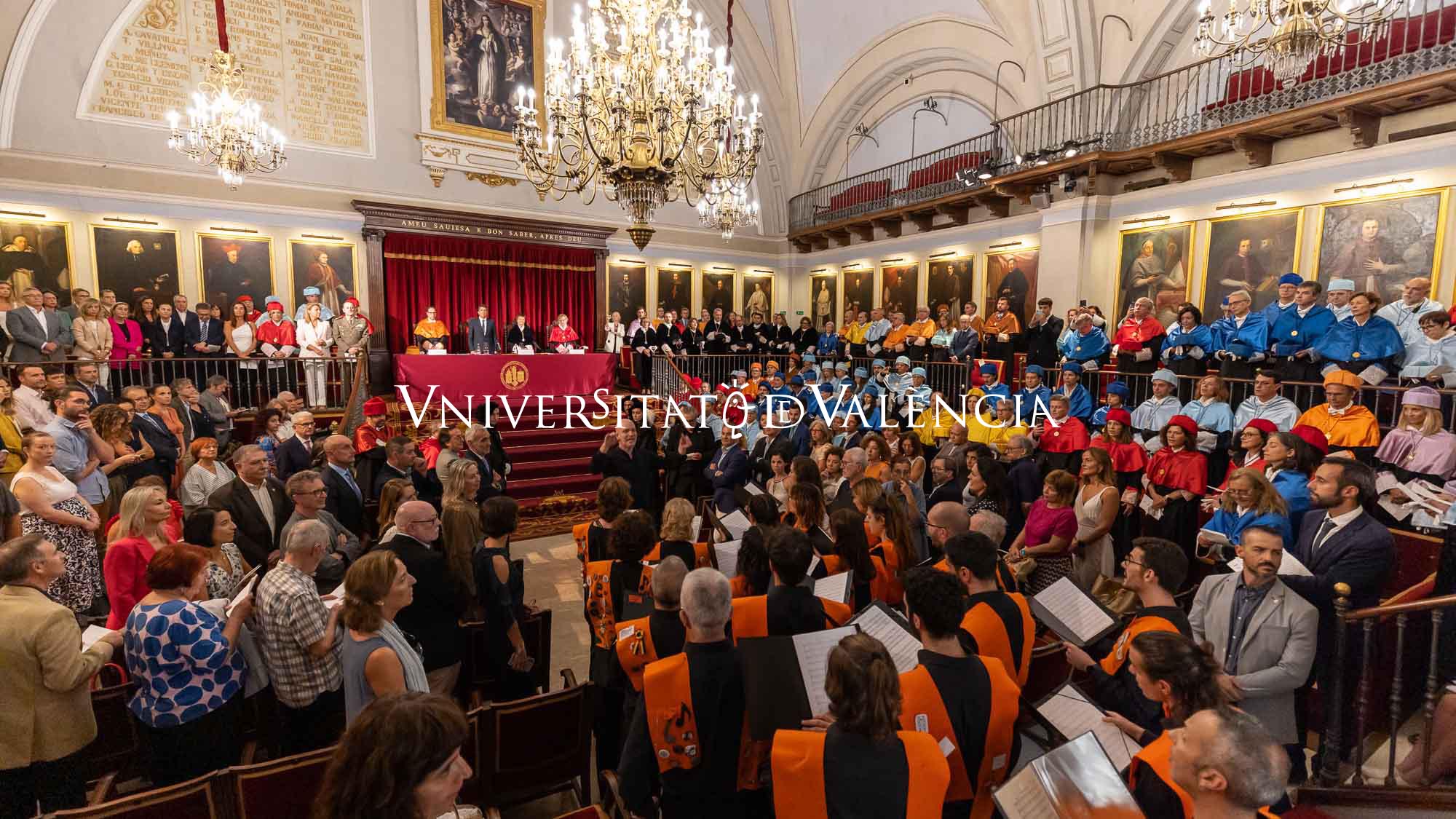
The University of Valencia’s school canteen, built at the School-Workshop at Goderich (Freetown, Sierra Leone), will shelter dozens of refugee boys and girls due to Ebola once the school year starts back again (the Sierra Leonean Government called it off until January as a preventive measure).
The school canteen, also equipped with a kitchen, was launched at the Goderich School-Workshop by the University of Valencia in collaboration with Diamond Child School of Arts and Culture NGO in order to provision over 200 boys and girls according to the first previsions. The building’s construction and its launching took place between the summers of 2012 and 2013. From then until its provisional closing, the canteen was granting daily food to around 350 children between the ages of 5 and 16.
The construction of the kitchen-canteen is framed in a cooperative project launched by the University of Valencia’s full university professor Federico Pallardó and Regina Bernabeu, from the Health and Sagety and the Environmental Service, within the program 0.7 Una Nau de Solidaritat from the same academic institution.
As explained by the Diamond Child School of Arts and Culture NGO’s president Anthony Zachariah Jalloh ‘Seydu’, ‘the interruption of the canteen’s service is due to the closing of the educative centre as a consequence to a governmental law valid until the Ebola epidemic is under control. This equally law affects to public transportation, whose activity has also been interrupted for being places that bring loads of people together; it is, hence, a risk point for the virus’ expansion.
As informed by the NGO’s main responsible, there have not been any Ebola cases in the community of Goderich. However, and due to its easy maritime connection, this area is receiving a large number of orphaned boys and girls due to the illness. Currently, the children are being sheltered by the community’s families -once contagion has been discarded. However, once the educative installations reopen, they will be taken care at the canteen. ‘Now the precautions are extreme as the virus is expanding in Freetown’, he explains.
Goderich’s kitchen-canteen
Goderich’s kitchen-canteen project at Freetown (Sierra Leone), is framed in the 0.7 Una Nau de Solidaritat Programme by the University of Valencia, promoted by the Office of the Vice-Principal for Internationalization and Cooperation within the academic institution currently directed by Guillermo Palao.
The project consisted on the construction and equipment of a kitchen-canteen for Goderich’s students at the School-Workshop. With this initiative they have achieved to provide an adequate nutritional diet for the boys and girls at Goderich school, improving hence their health and school performance.
The kitchen-canteen has prevented children from going out to find sustain despite the scarcity of resources. The situation in the African country, ravaged by the civil wars, and currently weaken by the Ebola epidemic, is very dire. Most boys and girls only get one meal a day and, many times, they do not even have the resources for it, reason why they frequently faint during the lessons. Additionally, the academic performance considerably drops if the student is starving.
‘The project has been a success because a very good job was done. We have tried to address education using a canteen to call the boys and girls to school and hence, increase schooling; health, following adequate patterns of nutrition; and, at the same time, we have conducted a social action, integrating ex-combatant children involved in the civil wars from very early ages’, explains Pallardó.
Similarly, the project has offered jobs for the local population as the constructions were done, when possible, by members of the Godercih community. Later, a cook was hired to elaborate the established menus.
After finishing the building’s construction, it was equipped with the necessary materials and tools (fridge, freezer, pots, pans, cutlery, silverware, tables and chairs). At the same time, a road map has been done in collaboration with the mothers, who are the ones to perform service and maintenance labours in the school as volunteers. they have acquired all the food thanks to the joint collaboration between the NGO Association for Africa (with headquarters in Madrid) and Diamond Child School of Arts and Culture in Spain.
The kitchen-canteen has also allowed the schooling of more boys and girls as the new building is also used as a classroom outside the canteen’s schedule.
The project’s frame is that of Programa 0,7 Una Nau de Solidaritat, from the University of Valencia. It is managed by the 0,7 Commission, which was created in 1995 aiming to establish general acting lines in matter of cooperation to development by the University of Valencia. 0.7’s budget comes from the 0.7% of the University’s total budget as well as a voluntary 0.7% of the teacher’s salaries and the student’s tuitions among the different cooperative programmes. They control and supervise the budget as well as prepare and solve calls for their own cooperation projects.
Last update: 30 de september de 2014 08:40.
News release














